SUMMARY
This is AI generated summarization, which may have errors. For context, always refer to the full article.
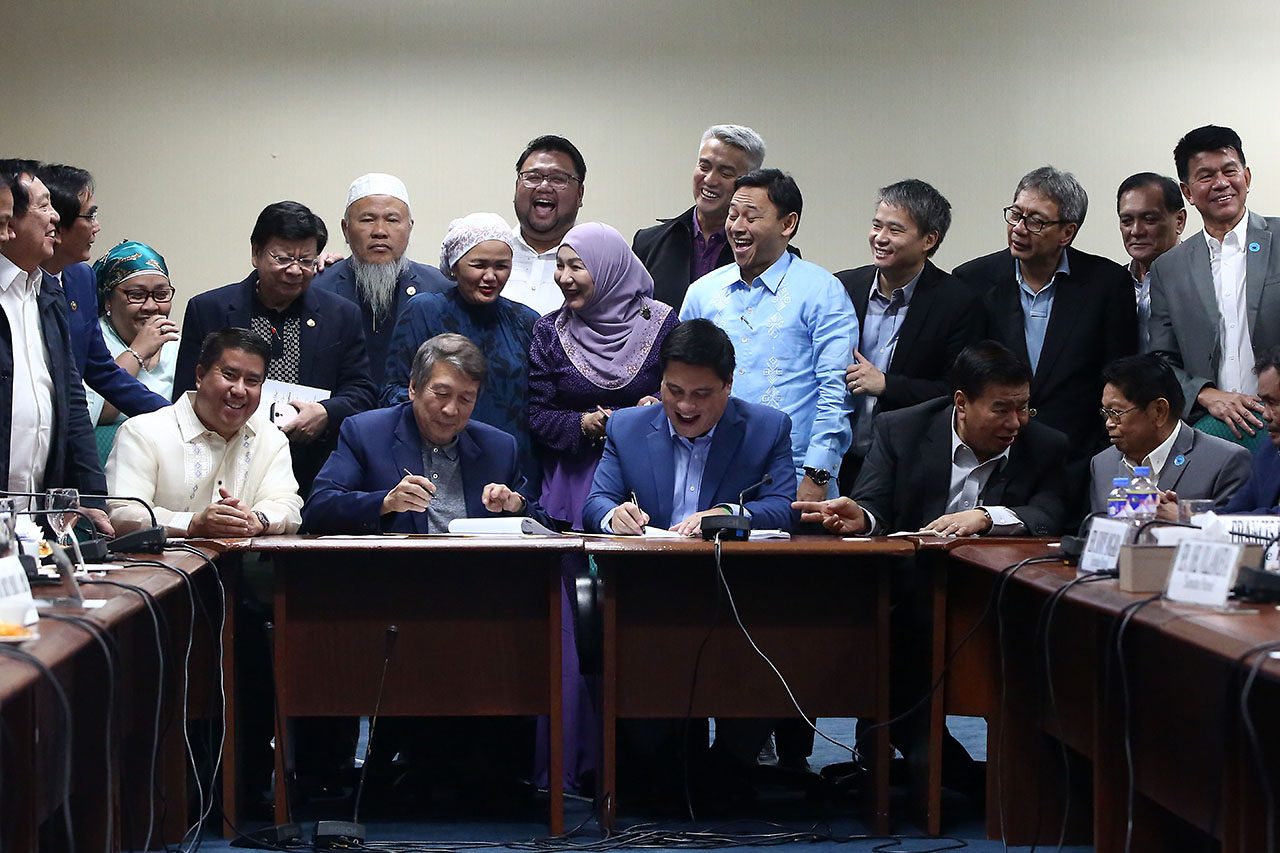
MANILA, Philippines – The road to peace in Mindanao looks bright, yet filled with expected choke points, as Congress approved the landmark measure granting greater autonomy to the Bangsamoro region.
The fight for peace does not end with President Rodrigo Duterte’s signing of the Bangsamoro Organic Law. It is, in fact, just the beginning of the expected string of battles: constitutionality issues, possible dissatisfaction among certain groups, a plebiscite, and genuine and lasting change.
It had not been easy for Congress to approve and finalize the bill that would grant greater political and fiscal autonomy to a new Bangsamoro region, replacing the so-called “failed experiment” that is the Autonomous Region in Muslim Mindanao (ARMM). After all, the problem in the region is a historical one, with more and deeper complexities than meet the eye.
Lawmakers had to contend with – and in a way balance – questions of legality, local politics, and possible security risks that may arise. They wanted to make sure the new law would not suffer the same fate as the Memorandum of Agreement on Ancestral Domain (MOA-AD) during the Arroyo administration.
But even lawmakers who crafted the bill admitted it would face legal challenges. First on the list is the impending fight in the Supreme Court (SC).
“Definitely, there will be [opposition to it]. They have the right, and we want them to bring it [before the SC] so it would pass the test of constitutionality. Mas maganda (It would be better that way),” House Majority Leader Rodolfo Fariñas said.
Senate Minority Leader Franklin Drilon expects that among the provisions to be questioned is the creation of a parliamentary government in the Bangsamoro.
“Yes, it can withstand the test of constitutionality, but I do not discount that this would be brought to the Supreme Court, especially on the issues involving the parliamentary government in the Bangsamoro,” said Drilon, who filed an opposition to the MOA-AD in 2008.
Political analyst and legal expert Antonio La Viña shares this sentiment. While he is in favor of the “innovation” of the Bangsamoro Parliament, he says some groups may want to be “naughty” and argue that the 1987 Constitution mandates separation of powers.
On top of this, there is a constitutional provision that may be open to interpretation. Article 10 only states that the region’s executive department and legislative assembly “shall be elective and representative of the constituent political units.”
La Viña said the constitution did not explicitly state whether it must be done through direct or indirect voting, as in the case of a parliament.
“Primarily because it’s the first time we’re having it…the national system is presidential, LGUs (local government units) are part of a presidential system. In the Constitution, there is separation of branches; in parliament, there is none,” La Viña said.
Still, La Viña maintains he is happy with the final output of Congress – notwithstanding anticipation of legal roadblocks.
“I was pleasantly surprised. I was not initially optimistic with the drafts from the Senate, the House. I felt it was diluted, but this is a welcome development, a pleasant surprise,” he said.
Legal conundrum
The most controversial issues in the measure are the territory and plebiscite. The bicameral conference committee even had a deadlock so intense that they had to ask the President to break it. (READ: Duterte ends BBL impasse: Mother LGUs’ vote needed for inclusion in Bangsamoro)
In the end, the House version won: mother units of the 6 Lanao del Norte towns and 39 north Cotabato barangays (villages) – the province and municipalities, respectively – shall vote on whether they would want these areas to be included in the Bangsamoro region.
Lawmakers and Duterte said this is the constitutional route to take, citing previous SC rulings. In April 2014, the SC ruled that registered voters of Nueva Ecija – not just those from Cabanatuan City – should vote in a plebiscite on the city’s conversion into a highly urbanized city.
The Dimaporos of Lanao del Norte are the staunch advocates of the said House provision. After all, they would lose territory and face so-called possible security issues in the area.
Lanao del Norte 2nd District Representative Abdullah Dimaporo told Rappler they would no longer question the measure in the SC and thanked Duterte, Fariñas, and Senate Majority Leader Juan Miguel Zubiri for hearing them out and siding with them.
He, however, said members of the House opposition would question the law in court. He refused to identify them.
While he is happy with the approved bill, Dimaporo said the 6 municipalities in their province and the 39 barangays in Cotabato should not have been included in the first place. (READ: Lawmakers’ fear of territorial loss delays final BBL scope, plebiscite)
This could be questioned in the SC. Critics, he said, could argue that the bill was inconsistent in applying the results of previous ARMM plebiscites. Dimaporo said provinces that want to leave the ARMM, such as Sulu, could use it to further their agenda.
The bill includes the whole of ARMM under Bangsamoro territory. Yet, at the same time, it also included the 39 villages and 6 towns – the areas that lost in the plebiscite because their mother units voted at the time against their inclusion in the ARMM.
“We are satisfied with the decision on the 6 municipalities and the plebiscite. Although, sana hindi ‘yun isinama dahil ang amendment na ginawa namin sa ARMM Law ay hindi na ito i-abolish, kundi inamyendahan. Ang amendment dapat sundin ano ‘yung ginawa na plebiscite sa ARMM Law. Sa bill, isinama ang ARMM na buo, sinunod ang results. Pero bakit ‘di sinunod ang resulta ng dating plebiscite, na ang buong probinsiya ng Lanao del Norte ayaw sumama? Bakit hindi nila sinunod ‘yun?” Dimaporo told Rappler in a phone interview.
(We are satisfied with the decision on the 6 municipalities and the plebiscite. Although we would have wanted that they were not included at all. Because what we are doing to the ARMM Law is amending it, not abolishing it. As such, we should have followed the results of the plebiscite on the ARMM Law. In the bill, the entire ARMM was included, following the plebiscite results. But why didn’t they follow the results of the plebiscite where Lanao del Norte rejected joining the ARMM?)
A bicam insider told Rappler that another questionable provision is the conversion of certain areas in Basilan and Maguindanao into regular municipalities (Article 18, Section 2, of the bicam-approved measure), as these should be compliant with the Local Government Code.
Section 442 of the Local Government Code sets requirements before a municipality is created. These include: average annual income of at least P2.5 million for the last two consecutive years, a population of at least 25,000, and a territory of at least 50 square meters.
It remains to be seen if the said municipalities in Basilan and Maguindanao meet the requirements, but lawmakers supposedly cited “humanitarian” reasons for their conversion.
Plebiscite, transition
Alongside legal battles is the fight for the hearts and minds of people in the Bangsamoro. After all, the measure would be nothing without their consent.
La Viña said President Duterte “will have to campaign to political leaders” in the region to ensure the measure’s acceptance and implementation.
“The President has to convince the political leaders to vote yes,” La Viña said.
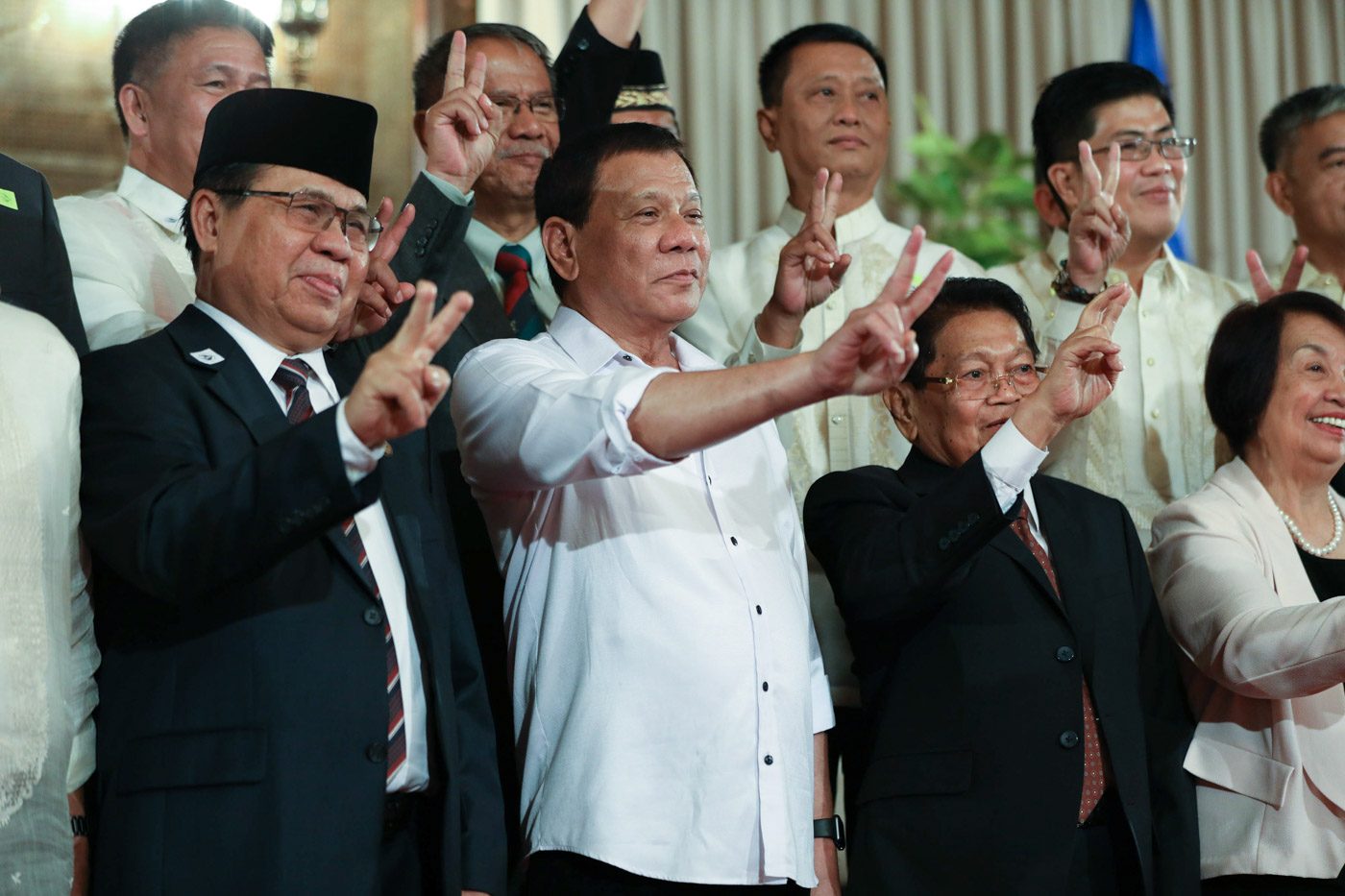
Dimaporo expects that only two out of the 6 municipalities in Lanao del Norte that will be potentially covered by the Bangsamoro – Munai and Tangcal – would vote for their inclusion. These are Moro Islamic Liberation Front-controlled areas. This, however, would not be enough as the province has to vote as well whether it would allow the two towns to join the Bangsamoro region.
“’Di na kailangan ng preparation. Ang botante po ng Lanao del Norte is about 65% Christian and 35% Muslim. Sa tingin ko po ‘yung buong 65% boboto ng ‘No’ na isama sa Bangsamoro ‘yung 6 na munisipyo namin. ‘Yung 35% ng Muslim ay hindi po ‘yun magiging zero. Maraming Muslim sa 6 ng munisipyo na nare-realize na kailangan magtulungan ang Muslim at Kristiyano. Out of the 6, we expect dalawa lang mananalo sa plebisito,” Dimaporo said.
(We don’t need to prepare. Voters in Lanao del Norte are comprised of about 65% Christian and 35% Muslim. I think the whole 65% will vote against the inclusion of the 6 municipalities. The 35% will not deliver zero votes against it. There are many Muslims in the 6 municipalities who have come to realize that there should be cooperation between Muslims and Christians. Out of the 6, we expect only two municipalities to win in the plebiscite.)
Dimaporo said he is confident that Christians and Muslims in Lanao del Norte would want the 6 municipalities to remain with the province, owing to supposed security risks. He said the province has always been the MILF’s “punching bag.” If the 6 municipalities would be taken away from them, the province would have a difficult time containing the threats and running after criminals there because the towns would no longer be under its jurisdiction.
“Lanao del Norte ang punching bag ng MILF. Kung meron silang ‘di gusto sa ginagawa ng national government, ang sinusuntok po nila ay Lanao del Norte. Nakita po ‘yan sa MOA-AD. Dalawang munisipyo namin, grabe, dahil sa galit nila sa ating gobyerno. It was because of only one branch, SC, eh bakit ang taong bayan ng Lanao del Norte ang papatayin nila, ang aabusuhin nila?” he said.
(Lanao del Norte has become the punching bag of the MILF. If they have something against the central government, they take it out on Lanao del Norte. It was seen after the MOA-AD failed. Two of our municipalities were attacked because the MILF was furious at our government. It was only one branch, the SC, that rejected it. But why would they kill and abuse the people of Lanao del Norte?)
Road to peace, good governance in Mindanao?
Despite all these challenges, the hope remains for a peaceful Bangsamoro. While some critics said the bill approved by the bicam is a diluted version, lawmakers, the Bangsamoro Transition Council (BTC), and the MILF believe otherwise.
The bill seeks a 75-25 wealth sharing between the Bangsamoro and national governments. This means 75% of the national internal revenue collection would go to the Bangsamoro, and 25% to the central government.
An annual block grant, pegged at a 5% share of the national internal revenue or some P59 billion, would also be automatically appropriated to the region without any conditions. The region will also be allowed to collect local taxes.
On top of this, the region will have its own system based on the unique cultural and historical heritage of the Bangsamoro. (READ: Bicam approves creation of Shari’ah High Court in Bangsamoro)
“It gives them more autonomy with that money than ever before. Not 100%, but there is really a fighting chance,” La Viña said.
La Viña is also optimistic that the parliamentary government would end decades of “political dynasties, warlordism, and patronage.”
“With political parties in the parliament, no single family can run the region. Well, they may need to have alliances, but not one family can do it,” he said.
MILF chief negotiator Mohagher Iqbal is giving the final version of the Bangsamoro Organic Law a grade of 85%, calling it imperfect but “something concrete that we can use to move forward.”
Iqbal also said the Bangsamoro Parliament would play a crucial role in ensuring the law would help usher in peace in the new region.
“It’s very important, because even if you have powers and you have access to resources, if the engine, like the vehicle, is not good, then the vehicle will not move fast and efficiently,” Iqbal told Rappler.
“Secondly, the parliamentary system is more attuned to our practices, more attuned to our religious orientation. Because in Islam, it says that the affairs of the community is by consultation. So in a parliamentary system, it’s basically group leadership,” he said.
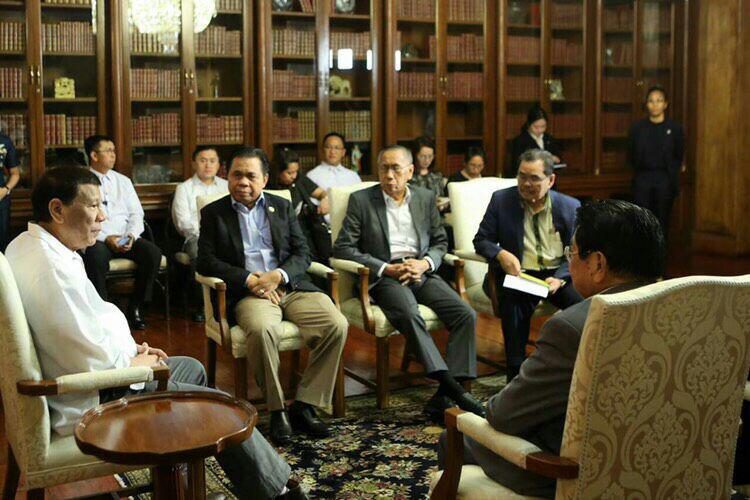
Drilon, however, doubts that the bill could effectively address poverty and governance issues in Mindanao. It was Drilon who pushed for an anti-dynasty provision during the Senate debates, to the dismay of BTC members, who criticized it as a form of discrimination and violation of their equal protection. The provision, however, was dropped in the bicam. (READ: Why Drilon didn’t push for anti-dynasty in BBL bicam)
“I am confident that the bicam’s version, which will finally pave the way for a lasting peace in Mindanao, is compliant with the Constitution…. I’m not very optimistic that [the bill] can effectively address issues of good governance,” Drilon said, citing a study by the Ateneo School of Government showing 4 provinces in the ARMM as among the poorest in the country.
“I believe that until we succeed in banning political dynasty, ARMM’s economy will not improve,” he added.
A challenge on messaging
While the MILF leadership is generally happy with the approved bill, young members have taken to social media to express their opposition to the final version. They still prefer the BTC’s original version.
Iqbal said they are well-aware of who these members are, but they understand where the disappointment is coming from. He said the youth tend to be more idealistic, failing to immediately see the need to accept compromises in the peace process.
“The young are idealistic. They always see the beautiful side of things. They imagine, and they are very energetic. I know that because I was once a young man…. But, you know, idealism is only in the mind; it cannot be achieved [so easily],” said Iqbal.
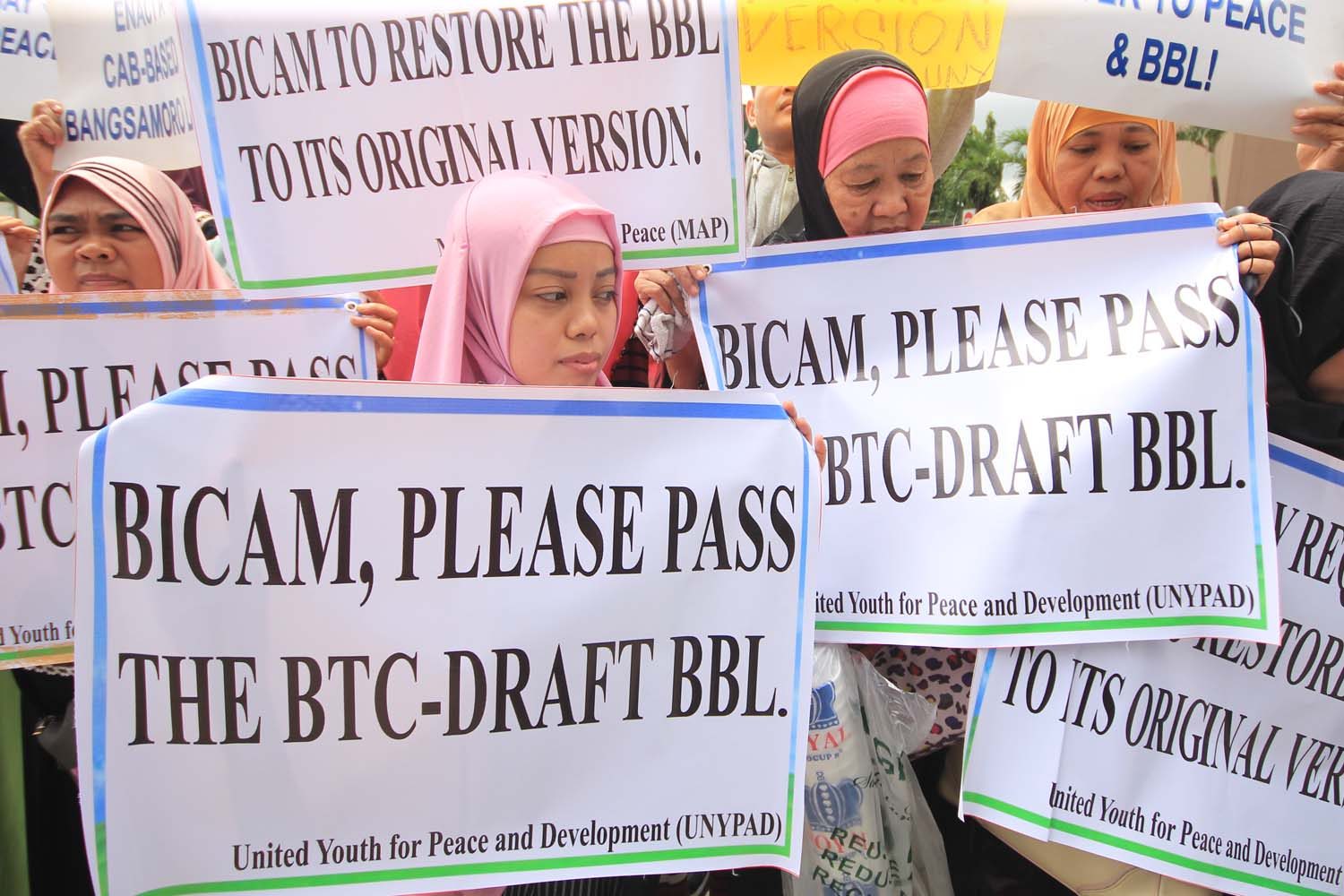
The immediate challenge for the BTC and the MILF is to formulate the best communication strategy to make their people understand and accept the new law. If they don’t, the Bangsamoro Organic Law may fail to get enough votes in the plebiscite, sending years’ worth of negotiations and legislative work down the drain.
The work is cut out for them. Iqbal understands that, unlike politicians, a regular person would only be concerned about how the law would directly benefit him or her.
“If you are talking to politicians, you speak about the [Bangsamoro Organic Law] in general, but there are certain special requirements to observe. When you are talking to the people at large, they don’t understand the complex issues. They want simple issues. How does the law benefit us? It’s as simple as that,” he added.
As for the Moro National Liberation Front (MNLF), La Viña said the group’s leaders are left with practically no option but to accept the measure.
“The MNLF is already mainly integrated. MNLF leaders na lang (only) but, on the ground, [it’s] integrated. Once Bangsamoro is challenged [and given] with that money, and I assume the MILF will win seats, they have to accommodate the MNLF. The MNLF has to reach out if they want to be relevant,” La Viña said.
“Kung palpak ang naging batas, may bala si Nur Misuari (If the law would fail, Nur Misuari would have ammunition). But this is better than ARMM, which was practically the government’s concession to him. They have to reach out,” he added.
In a television interview, BTC chairman and MILF vice chairman Ghazali Jaafar said he is positive that his group and the MNLF will work together to establish the proposed Bangsamoro government, as he has worked with MNLF leaders in the BTC.
“Hanggang ngayon nakakausap ko ang mga prominent leaders ng MNLF in Davao. At sa pag-uusap naming ito, hindi nila nasabi sa akin na hindi sila pabor. Pabor sila sa…. Natitiyak ko naman na tutulong sila, at hindi sila sasalungat. After all, itong gobyerno na ito ay inclusive to everyone,” Jaafar said in a TV interview.
(Until now, I get to talk to prominent MNLF leaders in Davao. And in our conversations, they have never told me that they are against the law. They are in favor of it. I am confident that they will help and they will not oppose it. After all, this government is for everyone.)
As the Liberal Party put it, “The passage of the organic law is just a start. We have to remain vigilant at every step of the way to see its implementation through.”
Islamophobia must end, too
Ultimately, Iqbal said, the leaders of the Bangsamoro Autonomous Region themselves must be able to prove their sincerity and capability to usher in a new age of peace.
“We have the intention and the will to do that. But that cannot be known until we are there. Everyone, even in basketball, aims to win. But it depends on the player in the court. It’s a very big challenge for us, it’s a huge challenge,” said Iqbal.
“We have to show that we are also capable. We have to show that we are as efficient as anybody,” he said.
He hopes the national government would work harder in going after corrupt politicians in the region as well.
“But on the part of government, corruption in our areas is tolerated. For instance, many local government executives consider the internal revenue allotment as their personal money. They spend it left and right! And government knows that, but they’re not trying to check that. They should file a case against them,” Iqbal said.
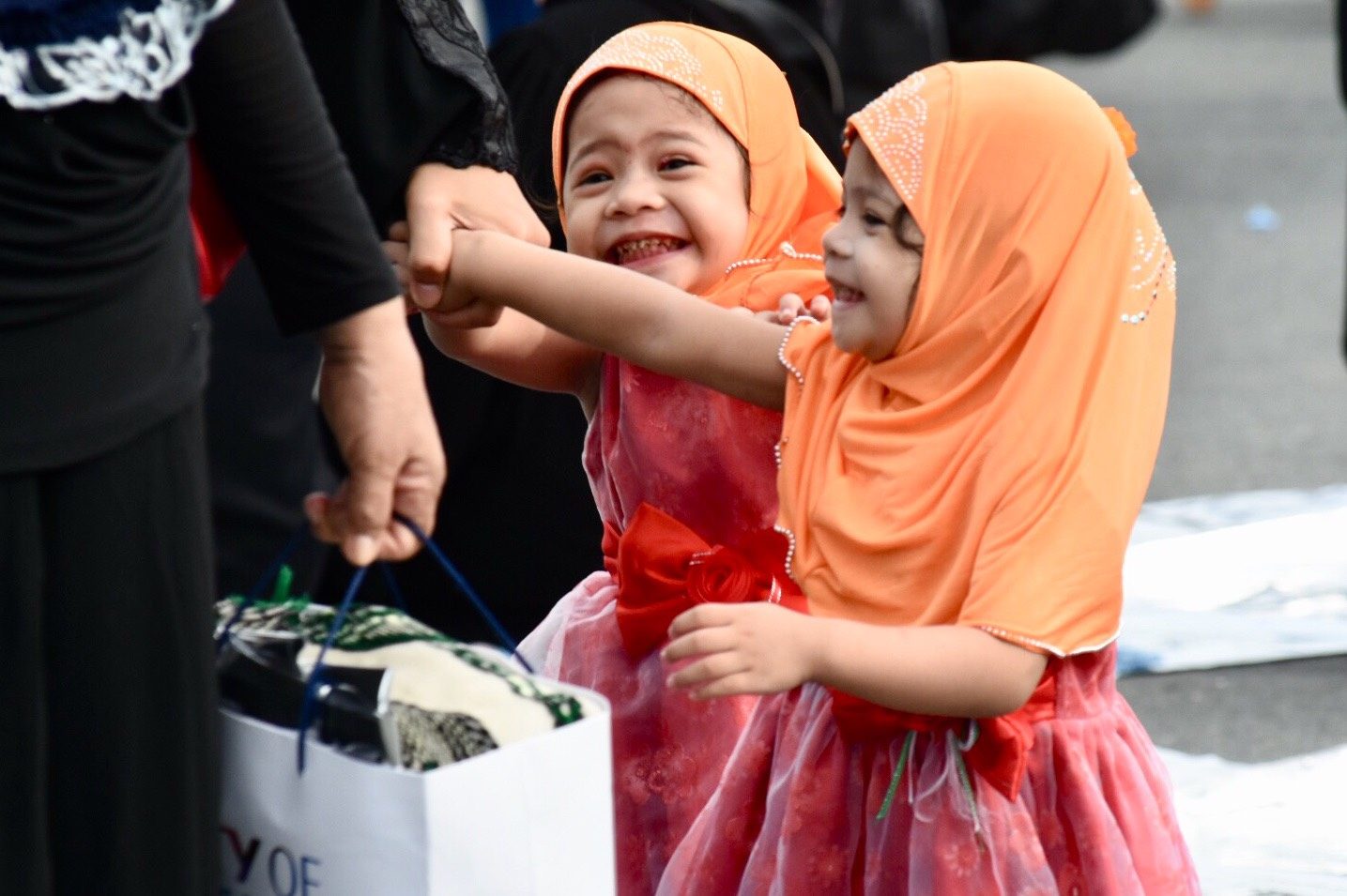
Healing in the Bangsamoro, however, goes beyond the efforts of its own leaders and people. Iqbal said Islamophobia still exists among Christian Filipinos. He cites the need to correct narratives against the Moros, even in history books.
“Of course, we have the enabling law, but it’s not yet complete. We need to address the past, what’s happened in the past. What are past misdeeds that Duterte had repeatedly said as historical injustice committed against our people? The loss of our homeland, the commission of human rights violations, the loss of homes, and even the emotional side to it,” said Iqbal.
“So if we change, you also change! It’s a two-way process. If we change, but you don’t, there can be no such kind of unity that we want to have,” he said. – Rappler.com
Top photo of Muslims in Pikit, Cotabato, welcoming the end of the Holy Month of Ramadan, was taken on June 15, 2018. Photo by Manman Dejeto/Rappler
Add a comment
How does this make you feel?

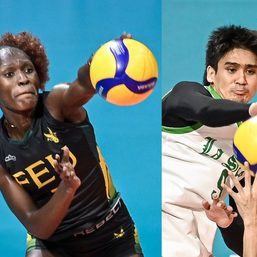



There are no comments yet. Add your comment to start the conversation.